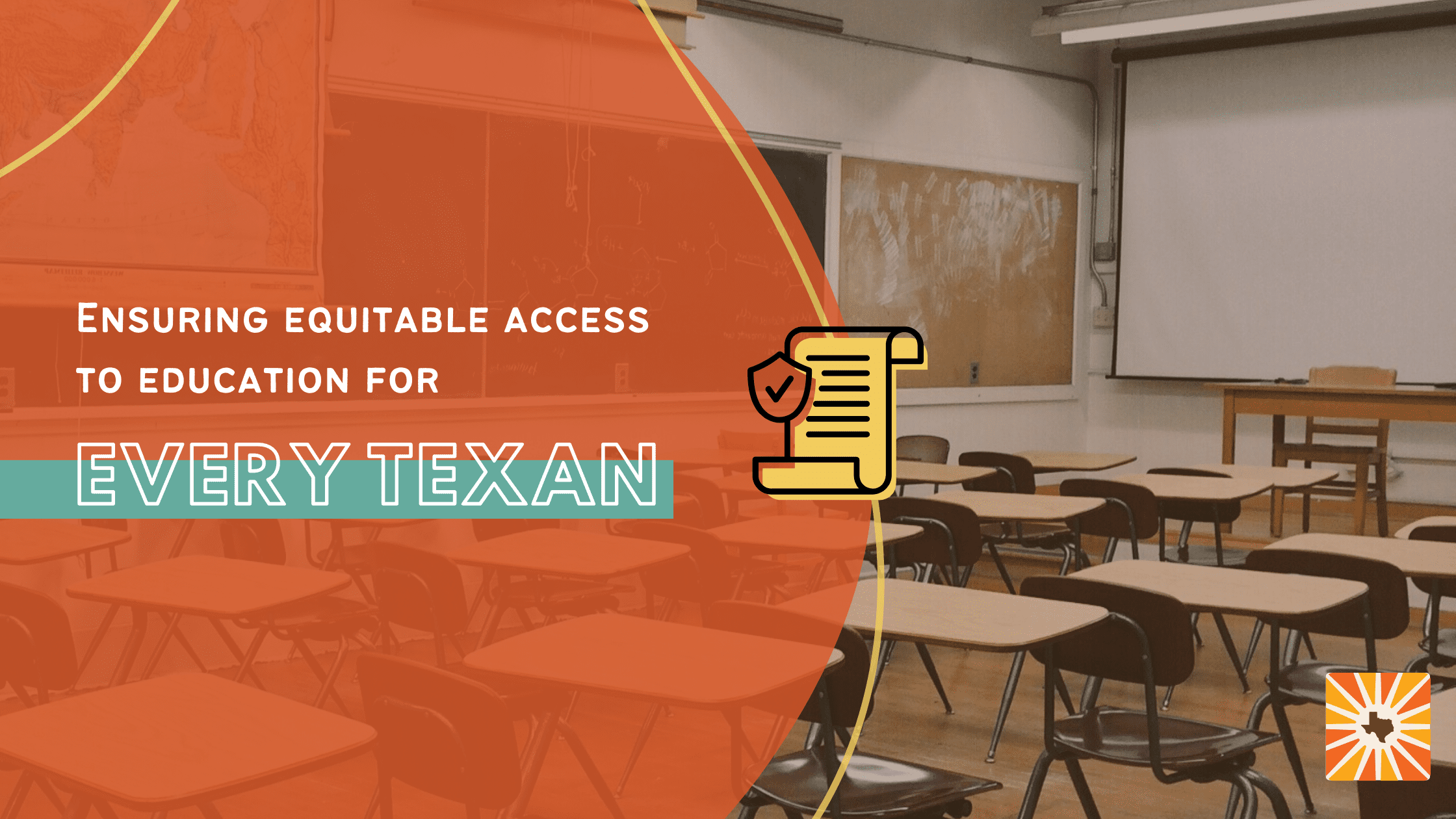With the help of Texas’ most powerful elected officials, out-of-state billionaires refuse to take no for an answer and continue to put the screws on public education, despite the strong opposition to vouchers from the Texas House of Representatives in the regular session. Speaker Dade Phelan established the Select Committee on Educational Opportunity and Enrichment to make the case for a voucher program ahead of the 88th Legislature’s third called session. The Committee’s recently published Initial Interim Report uses anti-public education rhetoric to finesse the tired call for a voucher program – much like the one the House Public Education Committee rejected in May. The report’s overtures to “equal educational opportunity” fall flat when supported by the recycled proposals of previous task forces and committees, including the Governor’s Teacher Vacancy Task Force.
State leaders are not telling the full story; public school districts are setting deficit budgets and struggling to comply with mandates for armed guards on campus, despite claims of record spending. Tax compression also threatens the future of public education, yet the report demotes a basic allotment increase to secondary status. Texas continues to underfund public education, proudly remaining near the bottom of all states in per-student spending, yet the Select Committee still plans to focus on vouchers.
Texans from Alpine to Jefferson trust their State Representatives with protecting and supporting public schools, and several Select Committee members acknowledged their dedication to that cause through letters within the report. However, not only did the Select Committee propose a separate and unequal voucher system, but they also plan to allow a non-governmental, private corporation to administer it! Because Senator Creighton’s SB 8 was too extreme, the Select Committee proposed vague safeguards and accountability measures to prevent problems documented in other voucher states. Examples of voucher failures mentioned include:
- Participants experiencing lower academic achievement
- Students with special needs being rejected or pushed out
- The costs to states soaring
During the layout of SB 8 in March, Senator West questioned Senator Creighton about the failures of other states’ voucher programs. West asked a specific question related to empirical data, and the bill’s author responded with platitudes equating “educational opportunity” to “parental choice,” while arguing there is a “grassfire” of national support for Texans to “experiment” with his half-billion-dollar proposal. This time in the House Select Committee, legislators are once again resorting to politicized rhetoric to sell Texans on a costly, ineffective proposal, all while educators across the state call for a $1,000 increase to the basic allotment.
There are recommendations in the report to support long-struggling public schools that could have been passed and implemented with HB 100. However, the overwhelming political pressure to enact vouchers in Texas makes investments in public education impossible without concession to the grassfire. Senator Creighton alluded to this “strategy” in July, telling a Texas Tribune audience he saw no problem packaging teacher pay, school funding, and vouchers together in another single piece of legislation. The bet that public education stakeholders will accept an SB 8-style bill in exchange for some of the report’s positive recommendations ignores the loud, consistently bipartisan rejection of vouchers in Texas.
The Texas House of Representatives should resist diverting any funding from public education. Even with the positive elements of the Select Committee’s Initial Interim Report, a voucher program would create a separate and unequal school system that would inevitably harm public school students. The state has refused to address the rising costs of public education due to record inflation since 2019. Across the state, schools are operating without the resources they need to succeed while being threatened with even less, should the recommendation to enact a voucher in Texas become law. This October, we expect supporters of public education in the Texas House to brave the political heat of Senator Creighton’s grassfire once more. The 5.5 million students in our state are counting on it.
